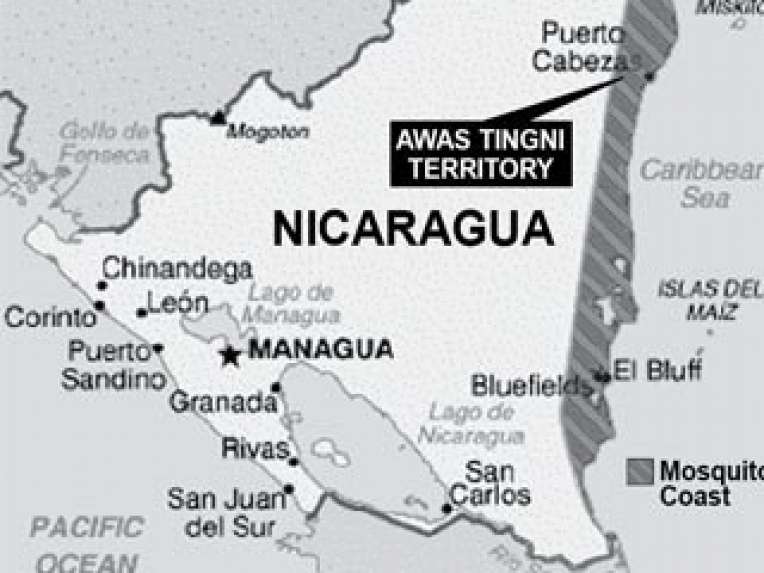This post builds on the research article “Activist Research v. Cultural Critique: Indigenous Land Rights and the Contradictions of Politically Engaged Anthropology,” which was published in the February 2006 issue of the Society’s peer-reviewed journal, Cultural Anthropology.
Editorial Footnotes
Cultural Anthropology has also published many essays that examine how indigenous knowledge has been constructed and validated.
Additional Works by the Author
Books:
Más Que Un Indio =: More Than an Indian : Racial Ambivalence and Neoliberal Multiculturalism In Guatemala. Santa Fe, N.M.: School of American Research Press, 2006.
Resistance and Contradiction : Miskitu Indians and the Nicaraguan State, 1894-1987. Stanford, Calif.: Stanford University Press, 1994.
Articles:
"Comment on Arturo Escobar's Latin America at a Crossroads: Alternative Modernizations, Post-Liberalism, or Post-Development?'." Cultural Studies 25.3 (2011).
"Consciousness, Violence, and the Politics of Memory in Guatemala." Current Anthropology 38.5 (1997).
"Cultural Politics of Identity in Latin America." Annual Review of Anthropology 26 (1997).

Related Readings
Michael Hathaway. "The Emergence of Indigeneity: Public Intellectuals and an Indigenous Space in Southwest China." Cultural Anthropology 25.2 (2010).
Marisol de la Cadena. "Indigenous Cosmopolotics In The Andes: Conceptual Reflections beyond "Politics." Cultural Anthropology 25.2 (2010).
Suzana Sawyer. “Bobbittizing Texaco: Dis-Membering CorporateCapital and Re-Membering the Nation in Ecuador.” Cultural Anthropology 17.2 (2002).
Stephen B. Brush. “Bioprospecting the Public Domain.” Cultural Anthropology 14.4 (1999).
Patricia Pierce Erikson. “A-Whaling We Will Go: Encounters of Knowledge and Memory at the Makah Cultural and Research Center.” Cultural Anthropology 14.4 (1999).
Charles V. Carnegie. “The Dundus and the Nation.” Cultural Anthropology 11.4 (1996).
Editorial Overview
It’s no secret that anthropologists today are concerned with the political struggles of marginalized populations. The many social movements which swept the globe in the Post-War Era made an indelible mark on the discipline as anthropologists began taking seriously questions related to politics, power and hegemony. And while few would deny that critical analyses of power continues to be central to anthropology, there remain questions about how, and the extent to which, anthropologists should become directly involved in the political struggles they study. Should anthropologists leverage their knowledge and expertise on behalf of marginalized communities? Or is it better, perhaps, to bracket the issue of direct action in order to get a broader—more critically nuanced—sense of the stage upon which various power relations are enacted?
Charles Hale takes up these questions in his essay “Activist Research v. Cultural Critique.” He draws on his work with the Awas Tingni—an indigenous community in Nicaragua—with whom he has collaborated in their struggles to secure lands rights. Hale argues that merely analyzing and critiquing power—what he calls “cultural critique,” e.g., doing a discursive analysis of the language used in courtrooms—does not go far enough in advancing political goals. Instead, researchers should combine cultural critique with activist anthropology. Indeed, he argues that activist anthropology requires a set of research methods that are distinct from the cultural-critical approach; for example, “positivist” research methods like statistics which can be presented as evidence in court. While he does not dismiss the “cultural critique” approach, he argues that the two sides should maintain a contentious dialogue over stakes and approaches to politics and power.
Hale’s essay provides several thought-provoking questions concerning the ethical responsibilities to the communities with whom we work. It also points to some of the real-world dilemmas and contradictions involved in explicitly activist projects. Ultimately, it exposes some of the generative fault lines that get unearthed when we think about what we can do with anthropological knowledge in heretofore unexplored domains.